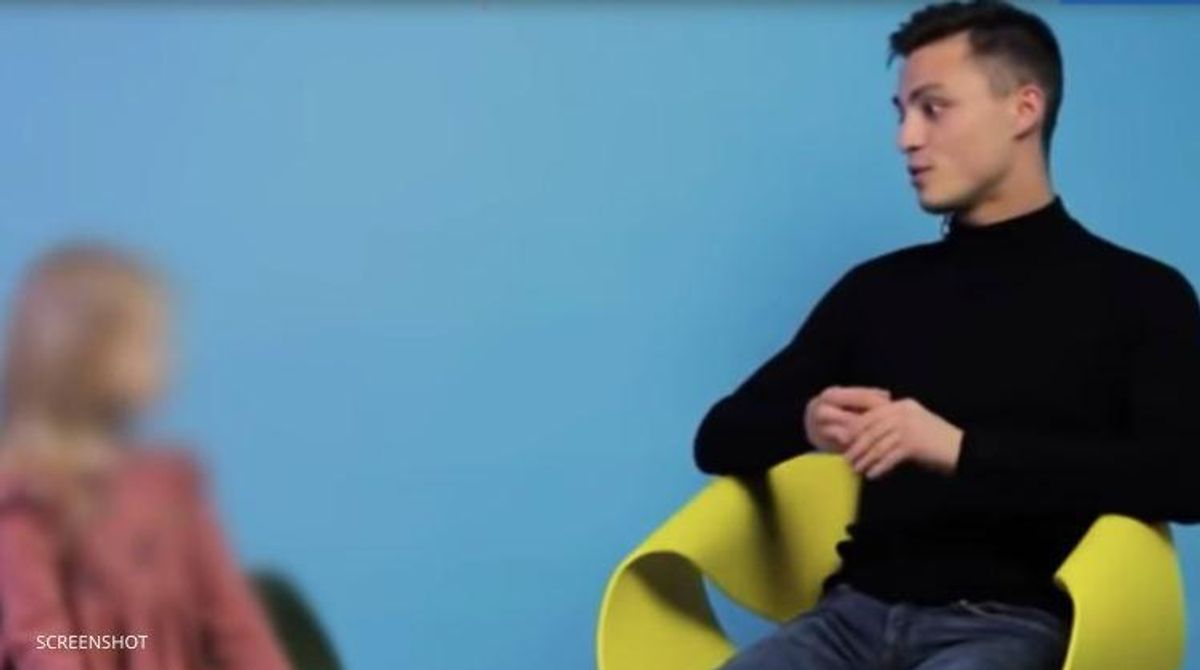Producers of a Russian YouTube series for kids called Real Talk are being investigated by authorities in Moscow after posting an episode featuring a gay man named Maxsim Pankratov, 21.
Real Talk is a Russian adaptation of the popular U.S. YouTube series Kids Meet, an unscripted show where children meet people from various walks of life to ask them age-appropriate questions about the person's background and experiences.
Launched in 2018, the Russian version has previously featured kids interviewing a woman with anorexia as well as a female comedian who spoke about her years in the adult film industry.
However, the interview with Pankratov caught the attention of former journalist and current State Duma deputy Pyotr Tolstoy, who reached out to the Interior Ministry and state telecommunications watchdog Roskomnadzor, claiming the episode violates the country's anti-LGBTQ law prohibiting public LGBTQ events, discussions, or even simple displays of queer visibility that would be accessible to minors.
As a result of the video, which reportedly had zero discussions about sex or intimacy, producers are now facing up to 20 years in prison on felony charges of sexual violence against minors.
Furthermore, Pankratov says he is getting death threats. Parents of the children featured in the video are also reportedly being harassed by child protection services and are being pressured to testify against the owners of the YouTube channel.
"People who had not seen the video [because it was blocked] thought there really was some sexual assault of those kids and they began writing all kinds of ugly things to me," Pankratov said to Human Rights Watch about the 13-minute episode, which featured four children aged 6 to 13 asking basic questions like when he realized he was gay, whether or not he wanted kids, and how others treated him.
Pankratov explained to Human Rights Watch that soon after the video was blocked, he barely escaped from two men who chased him near his home. He did not report the incident to police because he feared retaliation, a common concern for LGBTQ people living in Putin's Russia.
"The 'gay propaganda' law has created both a climate of fear for LGBT people in Russia, and a climate of impunity for their attackers," said Kyle Knight, senior LGBT rights researcher at Human Rights Watch, in a press release. "In this case, a gay man with well-founded fears for his physical safety does not even contemplate seeking help from the authorities but instead fears that going to the police would do him harm."
Additionally, Moscow-based human rights organization Open Russia said the parents are being intimidated by social workers with child protection services, who are threatening to take their kids away.
Valentina Dekhtyarenko, a representative of Open Russia, said in a statement via the Telegram app (written in Russian), "This looks like a bid by Pyotr Tolstoy for some easy PR for himself while hiding behind 'good intentions."
A source close to the owners of the YouTube channel also spoke to news website Coda, explaining that they fear for their lives and for the safety of all involved in the series.
"I had to reach out to the parents. They are incredibly worried and are under enormous stress," the anonymous source told Coda. "They are afraid they will lose their parental rights and even worse, be charged with a felony. This has been an enormous stress for me and it continues. I am very afraid for my life and my safety, for my freedom. I am worried about the filmmakers, for the gay man Maxim. I don't have the slightest desire to sit behind bars because of the whim of Pyotr Tolstoy."
A state-run channel, Russia 24, added fuel to the fire in September when it broadcast a clip from the interview after the episode was deleted.
During the segment, a member of Russia's Civic Chamber named Elina Zhgutova told reporters, "We need to act in a timely manner and not become conditioned to this filth." See video below.
"This case is a particularly disturbing example of authorities using Russia's 'gay propaganda' law as a tool for discrimination and intimidation," Knight said. "The perniciousness of the 'gay propaganda' law apparently knows no boundaries. A criminal charge of sexual assault of children for a YouTube video that contained no sexual content is as outrageous as it is terrifying."


















































































Viral post saying Republicans 'have two daddies now' has MAGA hot and bothered